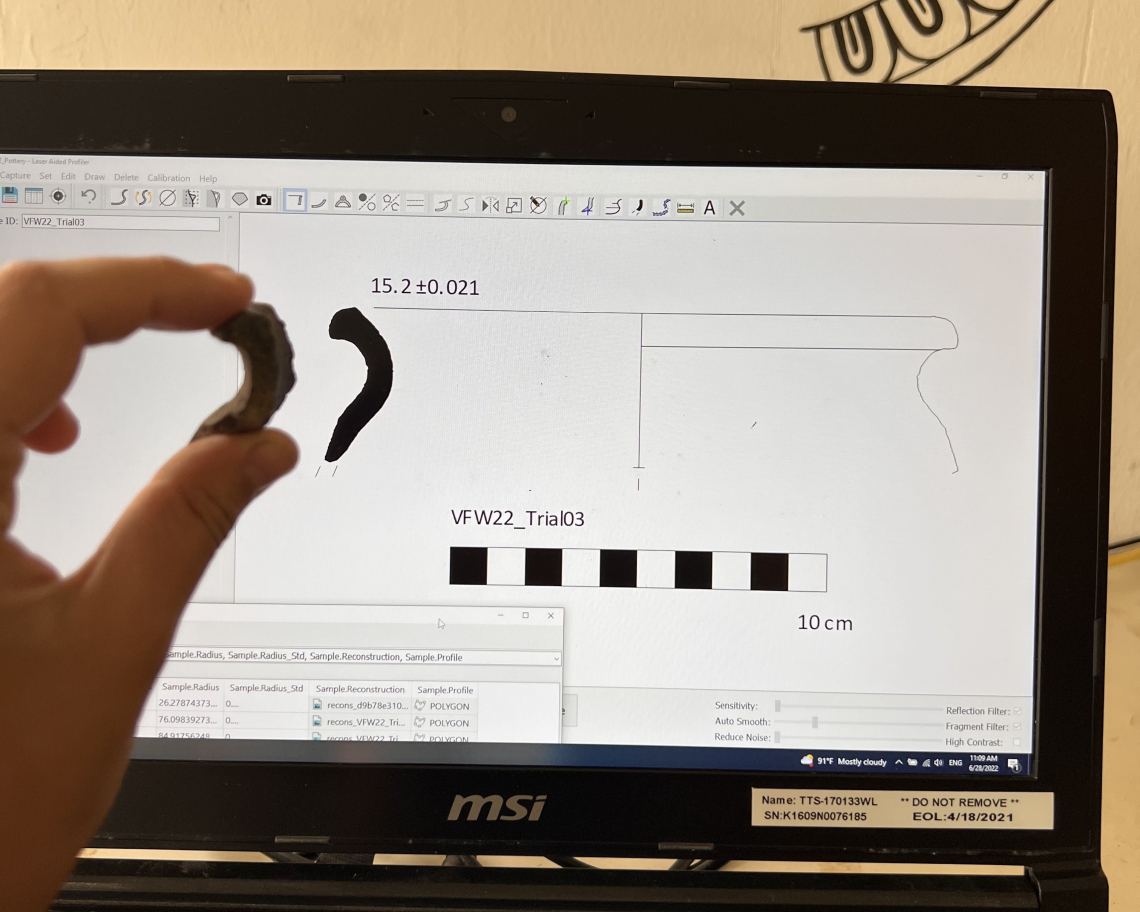Alex Pieroni: Vulci 3000 Excavation Project

This summer, I worked with Professor Maurizio Forte in the region of Viterbo, Italy on the Vulci 3000 project. Entering this season, I hoped to further explore my passions for Classics, Computer Science, and digital strides in archaeological fieldwork.
For me, archaeology is the natural way to extend my studies outside the classroom. While during the year I spend my time learning about the grammar and culture of ancient civilizations, I hope to spend my summers with my knees bent digging in their footsteps, their roads, and into their stories.
Thanks to the generosity of the university, I was able to explore my passion for archaeology in a more active manner than ever before. The excavation of Vulci opens the mysterious urban area through a new perspective. From my first day, I internalized the commitment that each participant had to the site. While there were special finds that connected everyone to the history of the site, I found my passion for the work in both the field and the lab; I carefully studied through each person I met there, whether it was learning Italian, diagnostic criteria for pottery, or the methodology and theory behind the archaeology. Vulci sparked a contagious curiosity in me––each person there had a reason to be there, and my goal was to learn as much from them as I could.
I became passionate about many subsections of the dig: each team members’ enthusiasm was a perfect environment to explore my archaeological passions. Quite early on, I started learning about various digital archaeological methods, ranging from airborne drones, Total Station, GIS, Photogrammetry, and the relationships between these tools that define their strengths and weaknesses. I felt respected at Vulci––within about a week of following others, I made my own archaeological conclusions that I felt confident in. Through each facet of my daily work at Vulci, my archaeological mindset expanded. Rather than asking about what the answer was, I started exploring how my peers came to a conclusion––I learned to develop my own archaeological instinct.
Archaeology is an unrepeatable science, but our team worked to ensure as much relevant data was preserved and interpreted as possible. I believe the future of archaeology is destined for innovation: digital methods offer more comprehensive access and implementation of historical information. My experience in Vulci confirmed that belief, and I hope to find myself back in the trench sometime soon.








